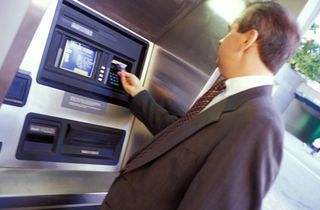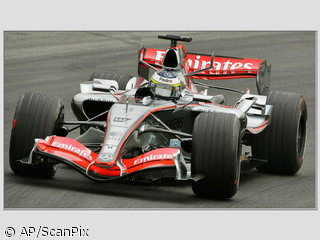The Australian Competition and Consumer Commission (ACCC) has called for an end to the practice of cybersquatting and for changes to the way disputes between domain name holders are managed.
Published:
25 June 2001 y., Monday
The consumer watchdog made the call in a submission to a WIPO (World Intellectual Property Organization) investigation of domain name issues.
Cybersquatting is the term used to describe the bad faith registration of a domain name. A domain name is often reserved with no intention to use it, save to prevent another company from using it or to make a profit by selling the name. The practice is bad for all online businesses, not just those directly affected, the ACCC says. The ACCC's position is that cybersquatting should be outlawed and cybersquatters evicted.
The watchdog believes that anyone applying for a domain name should be required to show a legal interest in that name. This is at odds with the current policy in .com, for example, which carries no such requirement.
In the future, the agency calls for new domains focused on particular types of users, rather than those of the "open slather" variety that it says allow cybersquatters to thrive.
The previous WIPO investigation of domain names partly resulted in the institution of the Uniform Domain Name Dispute Resolution Policy (UDRP) by the Internet Corporation for Assigned Names and numbers (ICANN), the world body that manages the domain name system.
Šaltinis:
Newsbytes
Copying, publishing, announcing any information from the News.lt portal without written permission of News.lt editorial office is prohibited.
The most popular articles
Software company announced new structure_ of it_s business.
more »
 The Self-Service and Kiosk Association has published its 2009 Self-Service Consumer Survey, a comprehensive report that reveals what consumers like and dislike about self-service technology — and what they want more of.
more »
The Self-Service and Kiosk Association has published its 2009 Self-Service Consumer Survey, a comprehensive report that reveals what consumers like and dislike about self-service technology — and what they want more of.
more »
 Private investors should hold up to 15 percent of their wealth in physical gold, according to a German asset-management company that plans to set up 500 "Gold-To-Go" ATMs in Germany, Switzerland and Austria sometime this year.
more »
Private investors should hold up to 15 percent of their wealth in physical gold, according to a German asset-management company that plans to set up 500 "Gold-To-Go" ATMs in Germany, Switzerland and Austria sometime this year.
more »
 ATM and debit card theft is expected to grow 10 percent to 14 percent this year, according to a survey of financial institutions that was released today.
more »
ATM and debit card theft is expected to grow 10 percent to 14 percent this year, according to a survey of financial institutions that was released today.
more »
 Built from potatoes, steered with carrots and powered by chocolate.
more »
Built from potatoes, steered with carrots and powered by chocolate.
more »
 Students at a Tokyo elementary school are waiting quietly for a "special lecturer" in science class. But when they see "Saya", a robot relief teacher, the kids are pleasantly surprised.
more »
Students at a Tokyo elementary school are waiting quietly for a "special lecturer" in science class. But when they see "Saya", a robot relief teacher, the kids are pleasantly surprised.
more »
 This week - the New York Times announced a deal with e-commerce giant Amazon timed to the release of its latest Kindle e-book device.
more »
This week - the New York Times announced a deal with e-commerce giant Amazon timed to the release of its latest Kindle e-book device.
more »
 Wincor Nixdorf AG and NICE Banking, an independent ATM deployer in South Korea, have partnered to grow a network of ATMs at sites owned by the country's top communications provider, Korea Telecom.
more »
Wincor Nixdorf AG and NICE Banking, an independent ATM deployer in South Korea, have partnered to grow a network of ATMs at sites owned by the country's top communications provider, Korea Telecom.
more »
 “The telecoms package has never been about anything to do with restrictions on the internet,” Malcolm Harbour told us ahead of Parliament's debate Tuesday on the telecoms package, which aims to reform the existing European electronic communications framework.
more »
“The telecoms package has never been about anything to do with restrictions on the internet,” Malcolm Harbour told us ahead of Parliament's debate Tuesday on the telecoms package, which aims to reform the existing European electronic communications framework.
more »
 On 20 April 2009 the Prague Congress Centre will host a ministerial conference Safer Internet for Children, which is organised by the Ministry of the Interior in cooperation with the European Commission.
more »
On 20 April 2009 the Prague Congress Centre will host a ministerial conference Safer Internet for Children, which is organised by the Ministry of the Interior in cooperation with the European Commission.
more »
 Payment card breaches in 2008 led to the most compromises and security breaches of record in the last four years, according to a new report from Verizon Business.
more »
Payment card breaches in 2008 led to the most compromises and security breaches of record in the last four years, according to a new report from Verizon Business.
more »